
Asia Pacific
21:37, 15-May-2019
Think tanks are important for further communication on civilizations
Updated
14:37, 17-May-2019
By Su Yuting
03:16
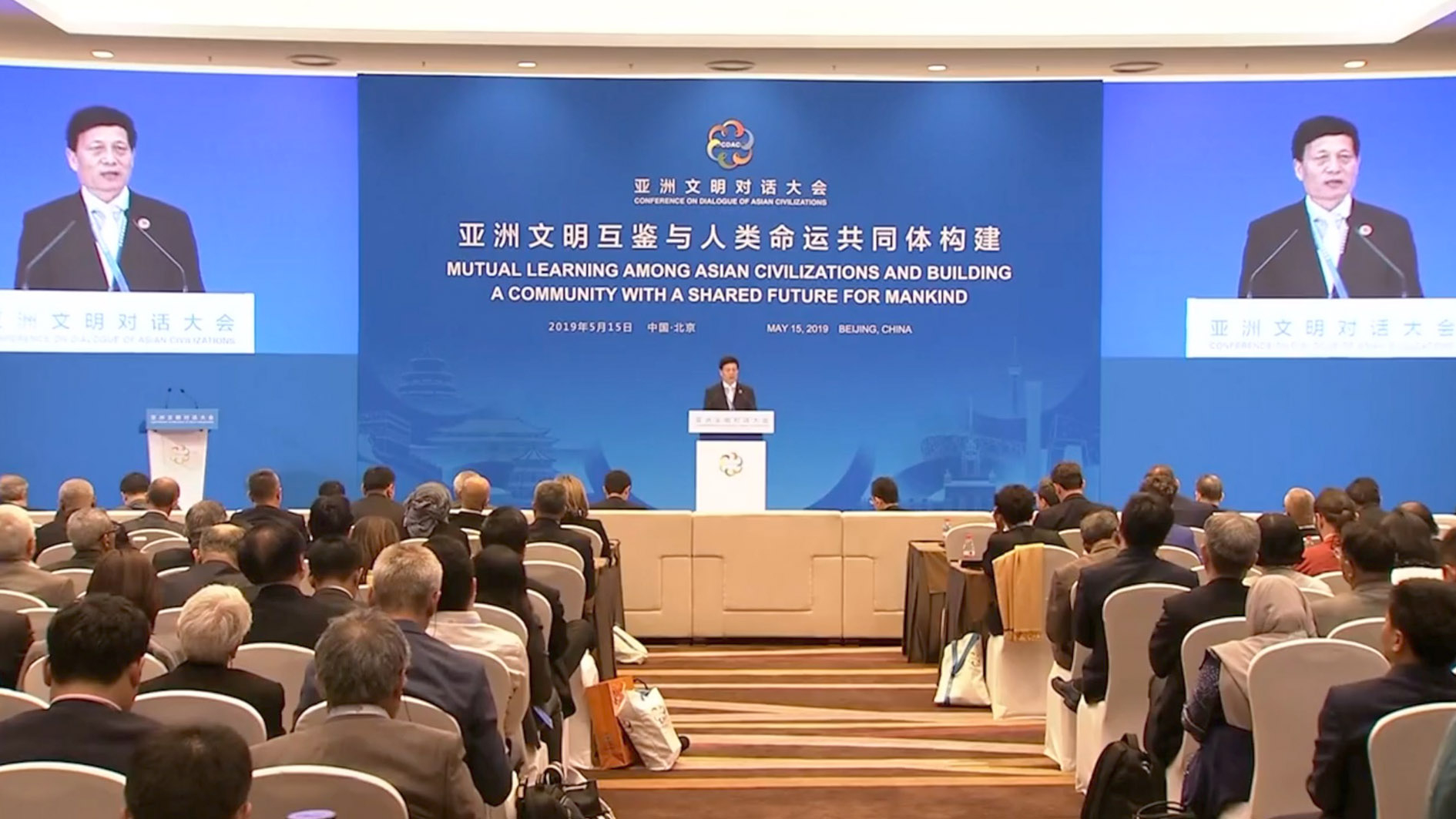
The parallel session "Mutual learning among Asian civilizations and building a community with a shared future for mankind" was held in Beijing on Wednesday.
Hosted by the Chinese Academy of Social Sciences (CASS), the thematic forum invited famous experts and scholars from Asian and non-Asian think tanks and persons in charge of international research organizations in the fields of philosophy, literature, art, economy, and technology.
As one of the most important parallel sub-forums of the Conference on Dialogue of Asian Civilizations, the forum serves as an important platform for participants to communicate and exchange ideas further and deeper.
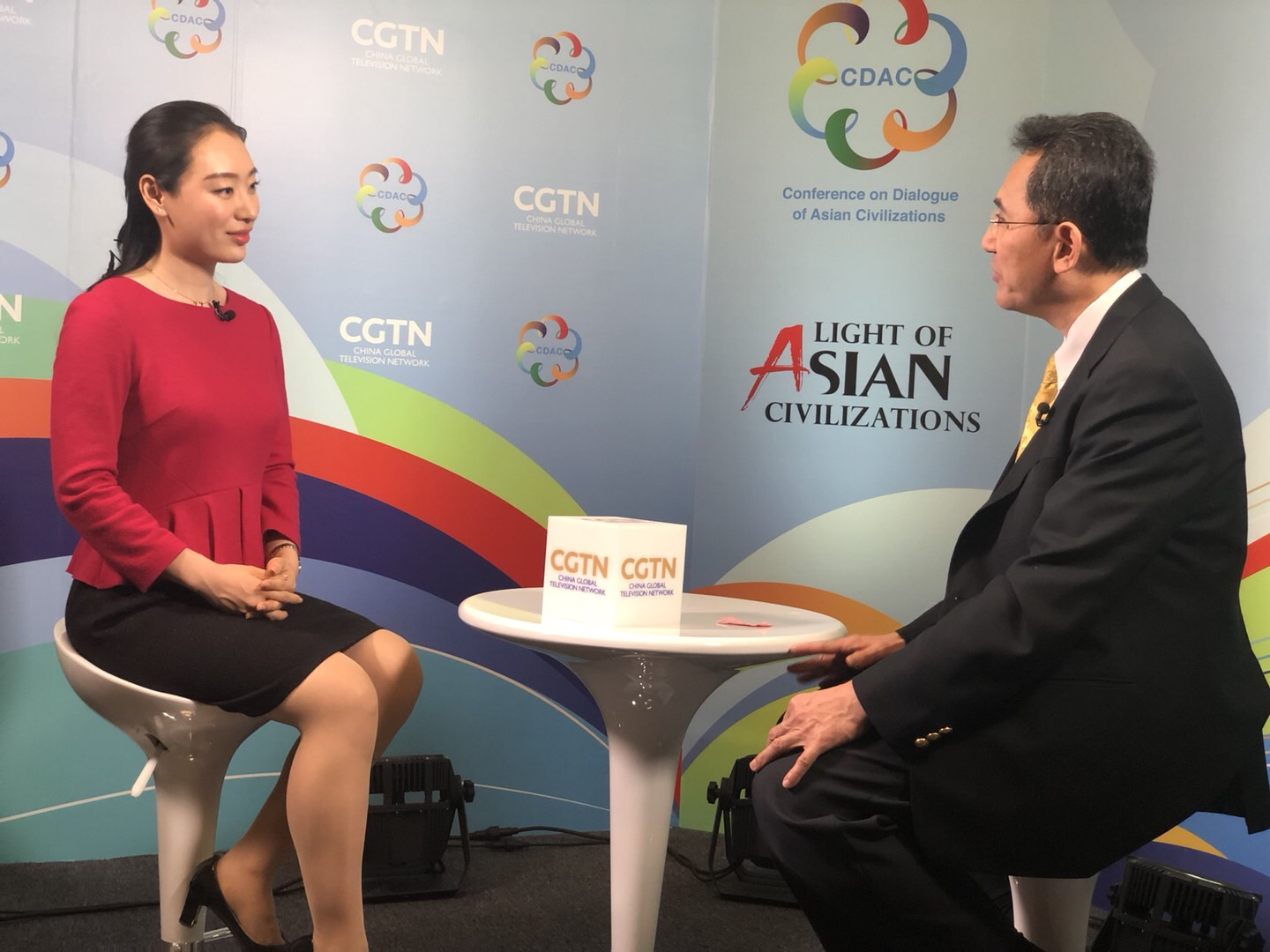
CGTN's reporter Su Yuting speaks to Bundit Limschoon, secretary-general of the Asia Cooperation Dialogue during the CDAC in Beijing. /CGTN Photo
CGTN's reporter Su Yuting speaks to Bundit Limschoon, secretary-general of the Asia Cooperation Dialogue during the CDAC in Beijing. /CGTN Photo
"Chinese President Xi Jinping's keynote speech at the opening ceremony has emphasized the importance of Asian civilizations in the world, and it also fully depicted the promising future of Asian civilizations," said Xie Fuzhan, the president of CASS.
Bundit Limschoon, secretary-general of the Asia Cooperation Dialogue (ACD), told CGTN that synergy turns difference and diversity into complementary.
"We have cultural interactions because we are different, because we are diverse. We are ready to open our arms to embrace other people."
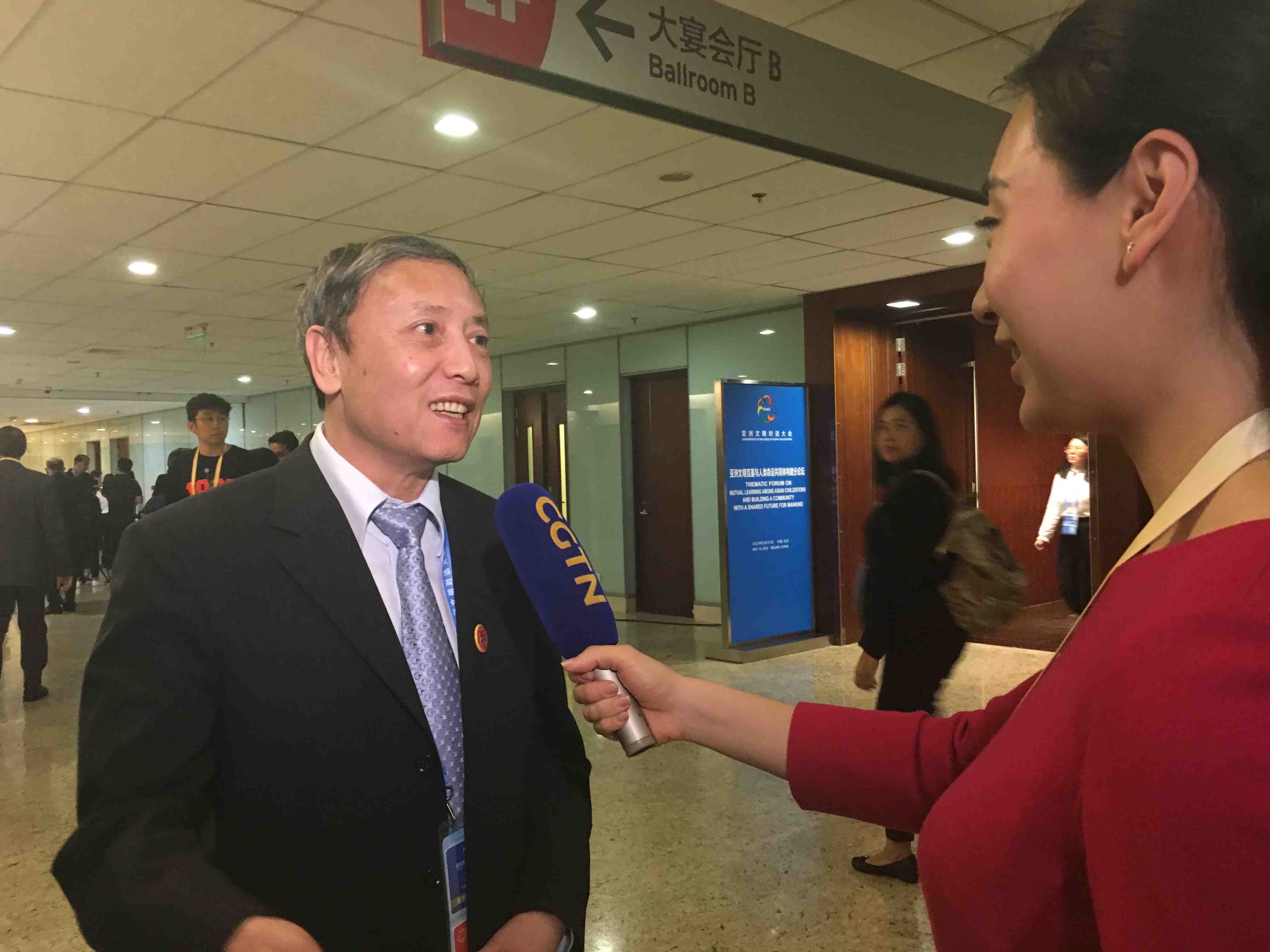
Cai Fang, vice president of the CASS talks to CGTN during the CDAC. /CGTN Photo
Cai Fang, vice president of the CASS talks to CGTN during the CDAC. /CGTN Photo
As the home to some of the most ancient civilizations in the world, Asia accounts for 30 percent of the total area of the globe, and sixty percent of the world's population.
Cai Fang, vice president of the CASS, noted that cultural exchanges and mutual learning are everywhere.
"Gathering scholars and commentators who got the chance to share ideas about their perspectives on different parts of Asia, on Asia as a whole, on history and on present day is incredibly important. It's important to work harder to understand each other," said Dr. Peter Frankopan, professor of Global History of Oxford University.
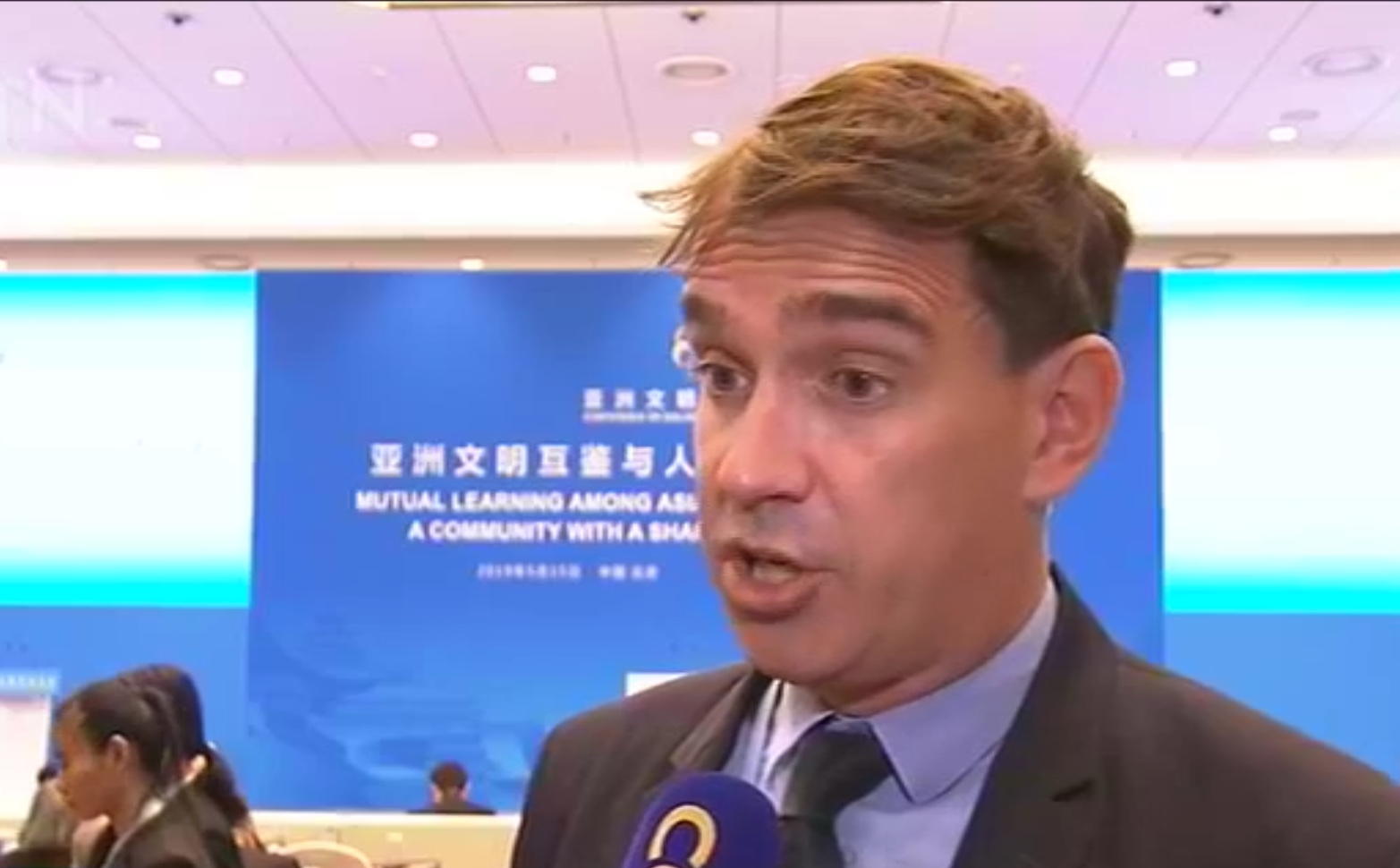
Dr. Peter Frankopan, professor of Global History of Oxford University, speaks to CGTN during the CDAC. /CGTN Photo
Dr. Peter Frankopan, professor of Global History of Oxford University, speaks to CGTN during the CDAC. /CGTN Photo
"We need to follow up what President Xi said, because it's crucial to have civilization's dialogue between the east and west," Kakha Shengelia, president of the International Association of University Presidents said.
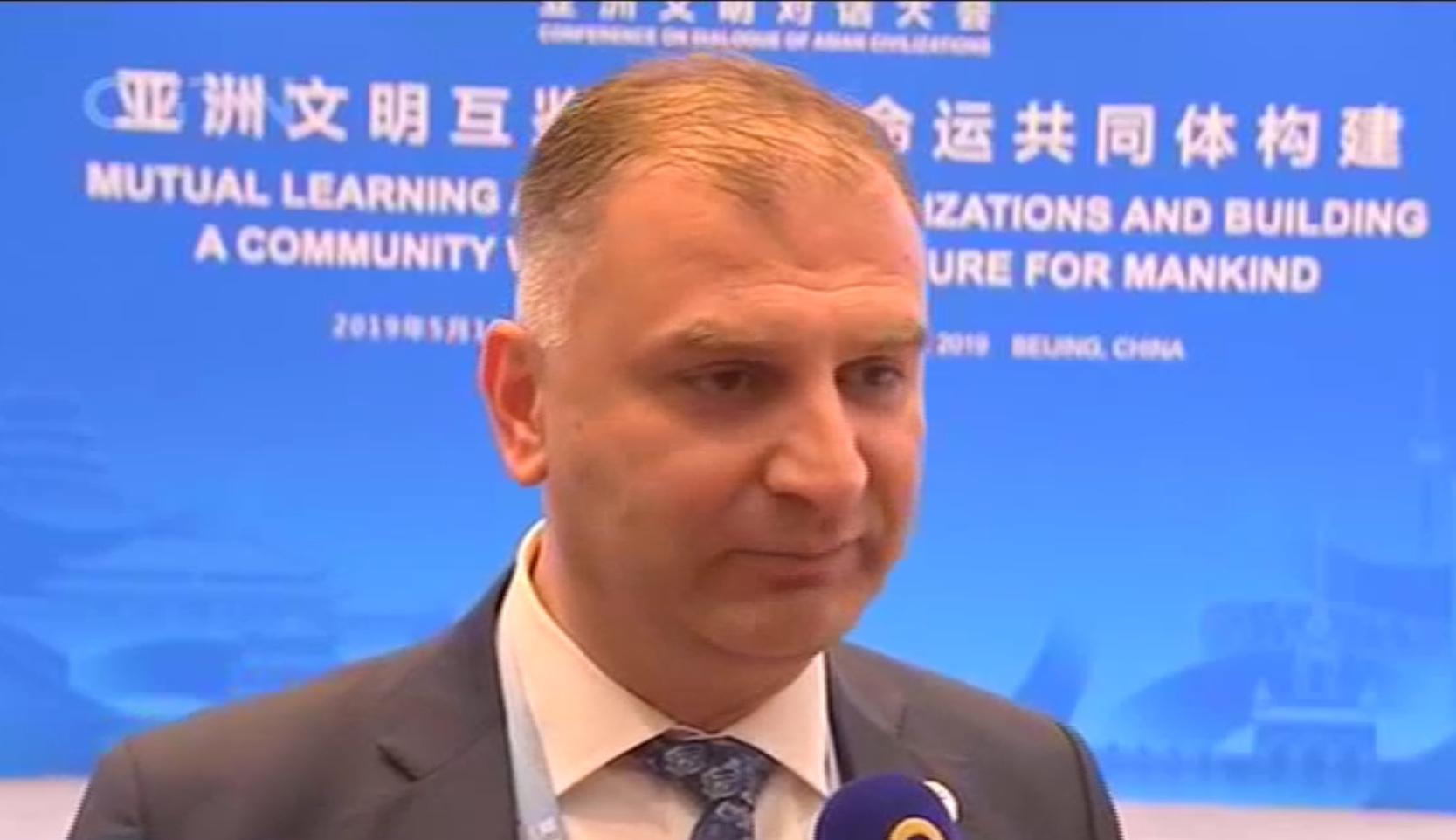
Kakha Shengelia, president of International Association of University Presidents speaks to CGTN during the CDAC. /CGTN Photo
Kakha Shengelia, president of International Association of University Presidents speaks to CGTN during the CDAC. /CGTN Photo
Wang Linghui, Executive Vice Chairman of Board at the Chinese Academy of Social Sciences, said, "We have conducted in-depth research on the significance of the Asian community of common destiny and the significance of building such a community. From the perspective of think tanks, we should learn from each other, develop solutions together and make contributions to the exchange of Asian civilizations."
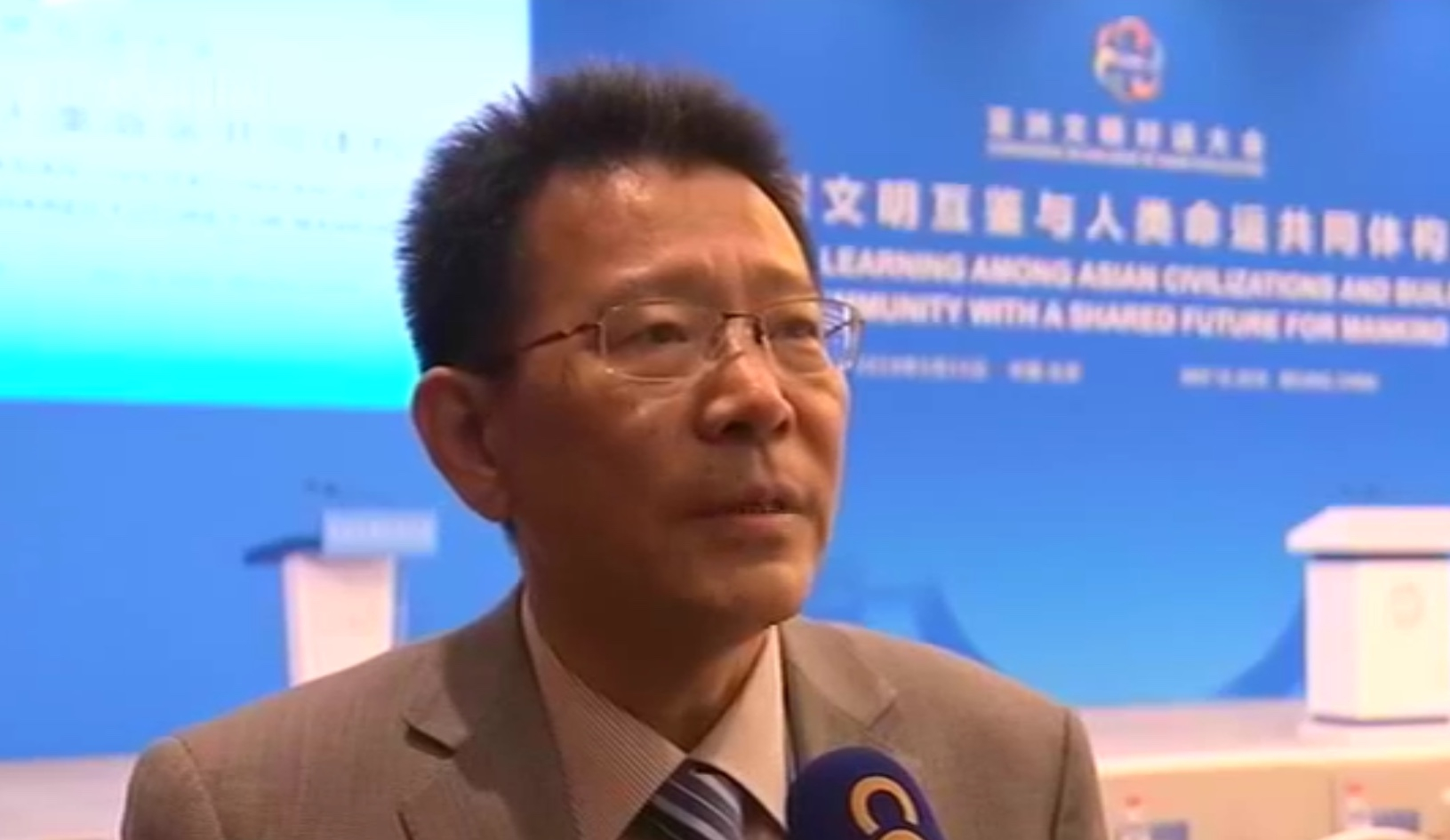
Wang Linghui, Executive Vice Chairman of Board at the Chinese Academy of Social Sciences, speaks with CGTN during the CDAC. /CGTN Photo
Wang Linghui, Executive Vice Chairman of Board at the Chinese Academy of Social Sciences, speaks with CGTN during the CDAC. /CGTN Photo
Currently, Asian countries still face problems of uncertainty and instability and an increasing of non-traditional threat.
Experts believed that it is necessary for think tanks to have dialogues and communications on civilizations, which will help promote the unity of the people, stimulate social economic development and realize long-term peace and prosperity in Asia.
0km

SITEMAP
Copyright © 2018 CGTN. Beijing ICP prepared NO.16065310-3
Copyright © 2018 CGTN. Beijing ICP prepared NO.16065310-3